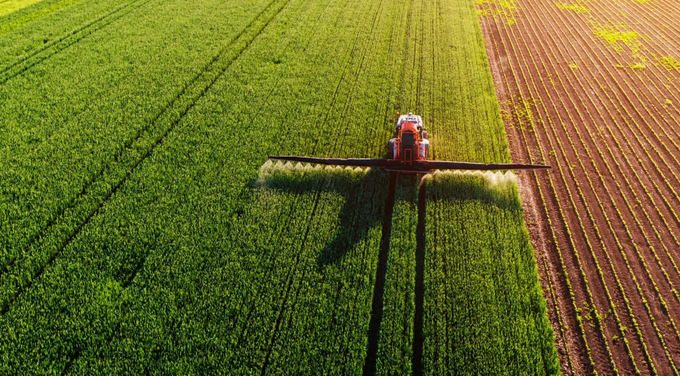May 21, 2025 | 06:35 GMT +7
May 21, 2025 | 06:35 GMT +7
Hotline: 0913.378.918
May 21, 2025 | 06:35 GMT +7
Hotline: 0913.378.918

Europe produced 18.3 million tons of nutrient fertilizer and consumed 17 million tons in 2021. Overall, 134 million hectares of agricultural land in the E.U. are fertilized.
The European Commission has announced a series of measures to ensure the availability and affordability of fertilizers for farmers in the 27-member bloc.
Commission officials blamed supply chain disruptions caused by the Covid-19 pandemic and the bloc’s ongoing energy crisis for record-high fertilizer prices. By its estimates, fertilizer prices have risen 149 percent year-on-year since September 2021.
According to Fertilizers Europe, a trade association, Europe produced 18.3 million tons of nutrient fertilizer and consumed 17 million tons in 2021. Overall, 134 million hectares of agricultural land in the E.U. are fertilized.
While the E.U. is a significant global fertilizer producer, the commission warned that it depends on imports of natural gas, phosphates and potash to manufacture fertilizer.
In the summer of 2022, the commission found that natural gas accounted for 90 percent of the variable production cost of ammonia, a key component of fertilizer production.
By August, when natural gas prices peaked in the E.U., the industry had shut down 70 percent of its ammonia production. The bloc attempted to mitigate these impacts by proposing to drop tariffs on imports of ammonia and urea, another fertilizer ingredient.
Currently, fertilizer production is running at 50 percent capacity in the bloc. However, commission officials warned that exports had dropped and fertilizer prices continued to rise, forcing olive farmers and others to make difficult decisions.
“High fertilizer prices affect farmers’ purchasing and planting decisions, and this, in turn, might affect the next season’s harvest and the E.U.‘s contribution to global food availability and affordability,” the commission warned in the report.
In the long term, the bloc plans to mitigate high energy prices by reducing its imports of Russian natural gas and reducing the use of fossil fuel-based fertilizers.
However, in the short term, the commission has announced a series of domestic and international actions to support farmers.
“In the short term, we have outlined actions to ensure the immediate availability and affordability of fertilizers,” Janusz Wojciechowski, Europe’s agriculture commissioner, wrote in a Tweet.
“As key contributors to the food sector, fertilizer producers can be prioritized for continued and undisrupted access to natural gas in the case of rationing,” he added.
The commission has also amended its temporary crisis framework to enable support for farmers and fertilizer producers.
“We have also increased flexibility and support possibilities for companies affected by rising energy costs, such as fertilizer producers,” Wojciechowski said.
The commission will also expedite €450 million from its agricultural reserve to offset what farmers are paying for high input costs.
While the commission plans to help farmers get through the current crop year, the bloc will also begin incentivizing the production of organic fertilizers and more closely regulate the market to prevent price gouging.
On the international stage, the commission said it would lobby for avoiding export restrictions on fertilizer and promote global fertilizer trade transparency, among other similar measures.
“The current crisis is an opportunity to accelerate the transition to a sustainable agriculture and a sustainable food system, away from an undue dependence on synthetic fertilizers, while ensuring an adequate and affordable fertilizer supply to farmers in the E.U. and in the world,” the commission report concluded.
(Oliveoiltimes)

(VAN) Attempts to bring down the price of the Japanese staple have had little effect amid a cost-of-living crisis.

(VAN) Fourth most important food crop in peril as Latin America and Caribbean suffer from slow-onset climate disaster.

(VAN) Shifting market dynamics and the noise around new legislation has propelled Trouw Nutrition’s research around early life nutrition in poultry. Today, it continues to be a key area of research.

(VAN) India is concerned about its food security and the livelihoods of its farmers if more US food imports are allowed.

(VAN) FAO's Director-General emphasises the need to work together to transform agrifood systems.

(VAN) Europe is facing its worst outbreak of foot-and-mouth since the start of the century.

(VAN) The central authorities, in early April, released a 10-year plan for rural vitalization.